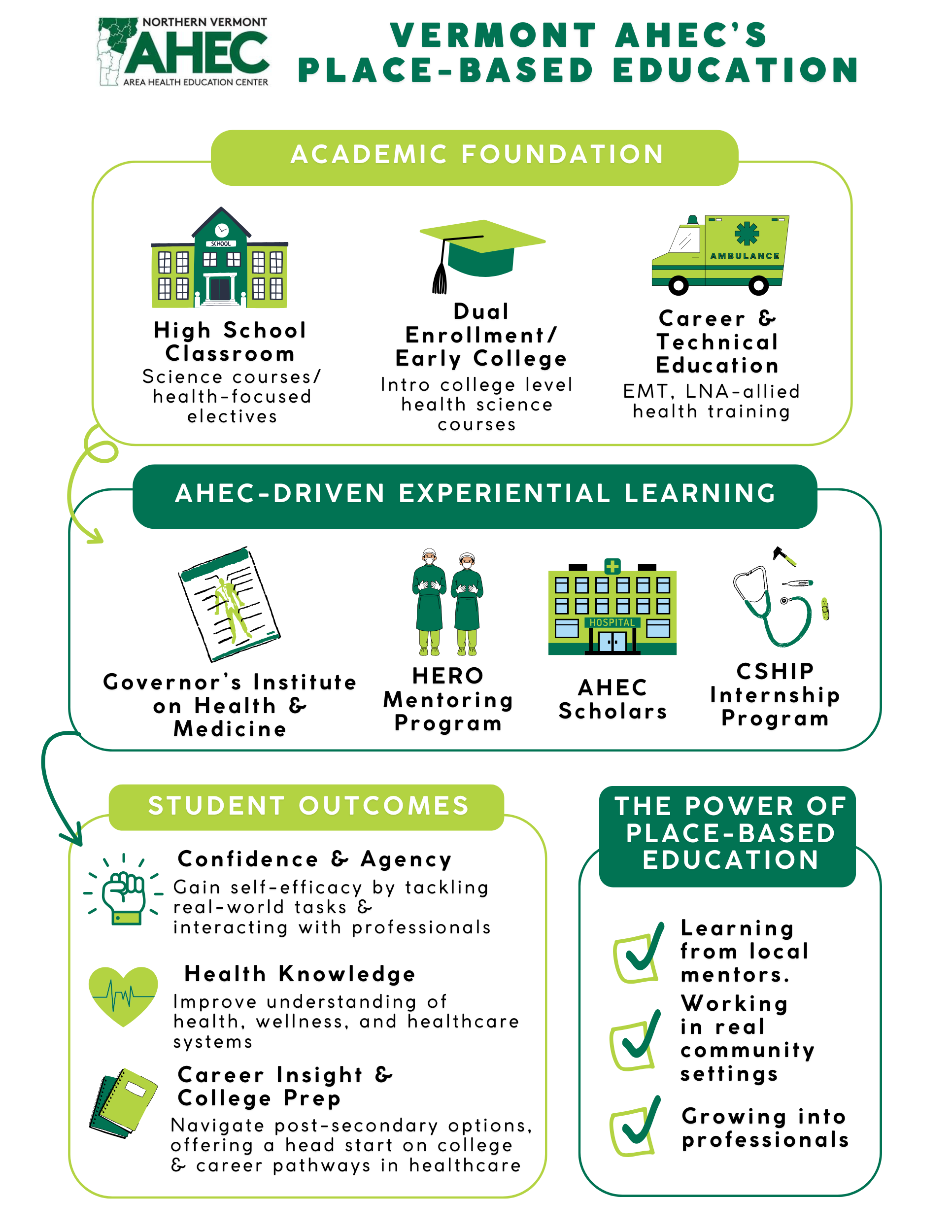By Nicole LaPointe
In Vermont, high school students interested in studying health sciences have opportunities in the regular classroom, in college classrooms via the dual enrollment programs like Early College, and in Career and Technical Education (CTE) centers. These opportunities provide academic foundations and clinical skills development. Vermont AHEC rounds out these offerings with experiential learning that connects to rural health systems and community organizations as its primary resources.
Through programs like the Governor’s Institute on Health and Medicine and the HERO Mentoring Program, Vermont AHEC orients students to emergency medical response, the social determinants of health, health literacy, inter-professional practice, and lifestyle medicine. These concepts take on greater significance when applied to hands-on work in the students’ own community, mentored by professionals and citizens who care about the local public health.
Engaging up close with health in their community, students learn their subject matter in deep and lasting ways. The immediate benefits are three-fold: (1) students recognize themselves as contributors to community health, which increases their sense of agency and confidence; (2) students advance local efforts in health promotion and well-being by adding their energy and intellect to tackle important issues; and (3) students gain knowledge that will empower them as health care consumers to make responsible decisions about their personal health. In the longer-term, students who are able to understand and analyze social and environmental contributors to health will have an advantage in college preparation and job-seeking, and have the foundation for effective health care practice as professionals.
This model is grounded in a place-based learning philosophy. Place-based education is an approach that uses all aspects of the local environment as the integrating context for learning. Place-based education is effective for growing one’s own workforce. By exposing students to meaningful experiences in their local health service systems, Vermont AHEC seeks to foster an inclination toward future practice in similar, rural and underserved communities. Student’s mentors and instructors become their future professional network, and the local issues they address in their AHEC activities become their future passions.

